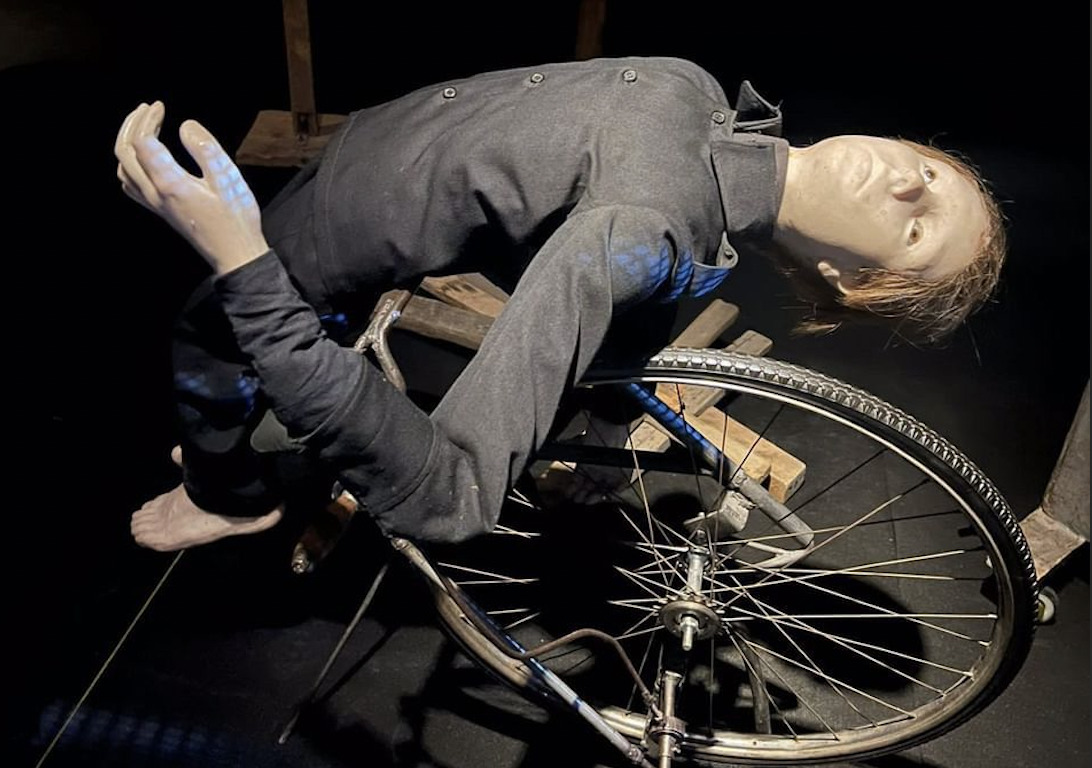Text by Piot Bockowski
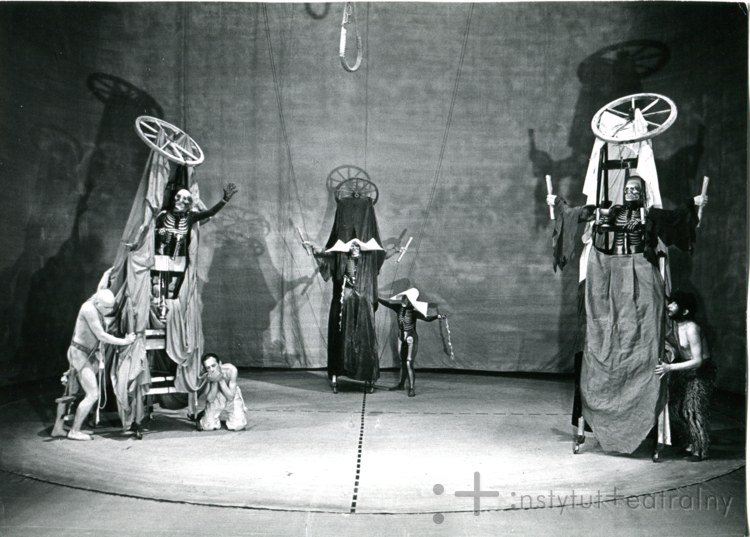
The outrageous female psychosomatic condition was identified as cyclically recurring fin-de-siecle syndrome. Crinoline and corset-wearing ladies, who indulged in bicycle riding, developed an odd mania in reaction to the distress of the nervous system exposed to intense exhilaration rapid riding brings about. Driven into a frenzy by welded mechanical turbine-limbs, extending the exoskeleton of their dress-scaffoldings, they rode over each other’s cleavages, twisting chain loops around hyperventilating bossoms or bent waistlines, pressing spinning tyres against vulvas compressed by hard leather seats.
Clockwork anxiety of raging cyclists has been harnessed by fashion designer Ingrid Kraftchenko for her upcoming London Fashion Week show at Barbican this Sunday. Holding possibilities of eerie re-enactments styled on militant bicycle units of Italian futurists, cross-bred with metal junk claded nihilist kamikaze motorbike gangs from proto-cyberpunk films of Sogo Ishii, Kraftchenko’s show promises absurd lunacy not dissimilar to London squatters bike wars that frequently happen inside abandoned Eastend buildings in close vicinity of her Hackney studios.
Tragic fanatism, necessary for any lone double-wheeled partisan unit, has been haunting Kraftchenko’s shows ever since her numerous (in the period of 2018-2021) collaborations with performance art choreographer Aliceex, whose earliest “act” involved cycling solo across hostile wild tropics of Central American jungle, while equipped with not much more than minimal camping gear and a machete. An unlikely alien environment set in motion by Aliceex via a personal man-powered machinic vehicle mobilised a decentralised spin of the world around an axis of DIY insanity.
Kraftchenko’s setting of Barbican into motion as a dynamic stage for cycling fashion models evokes theatre design concepts of Jozef Szajna, who transformed his experience of incarceration in concentration camps into spaces of dehumanised animations of kinetic objects, often including spinning bicycle wheels forced to labour as uncanny propellers that mediated or replaced morbid human agency.
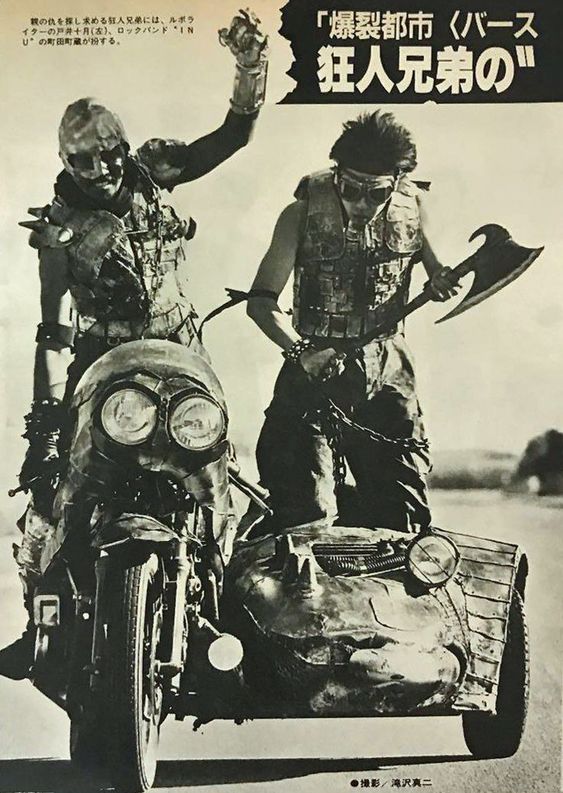
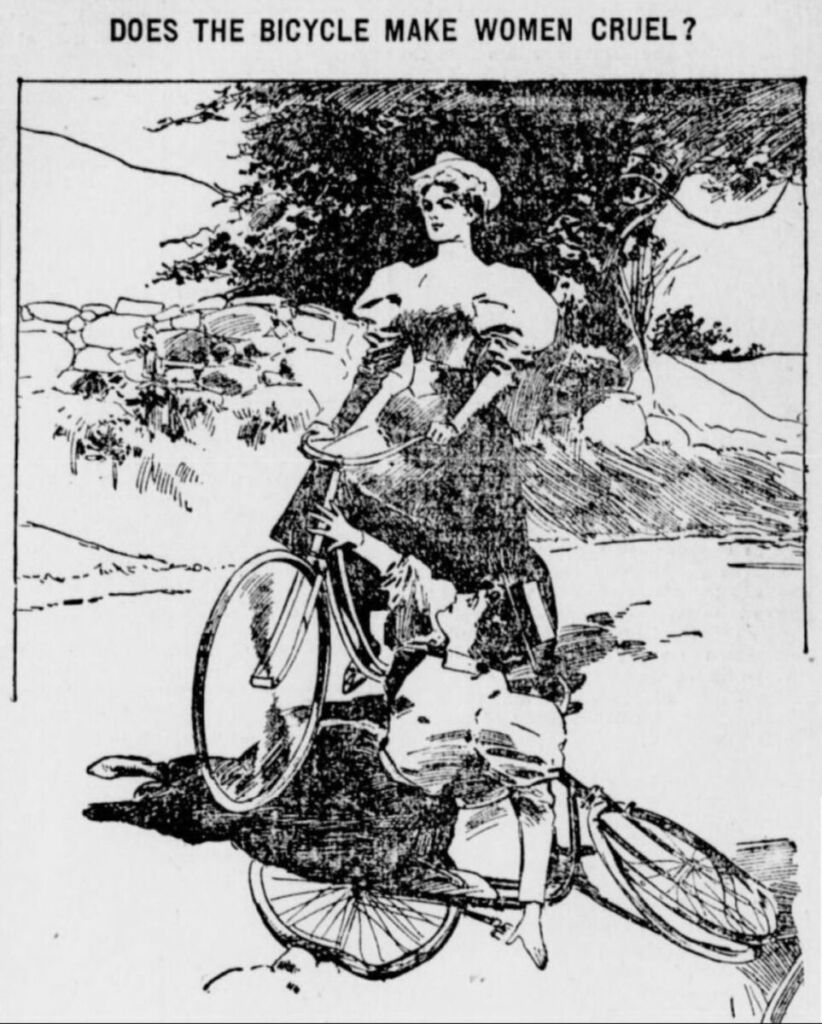
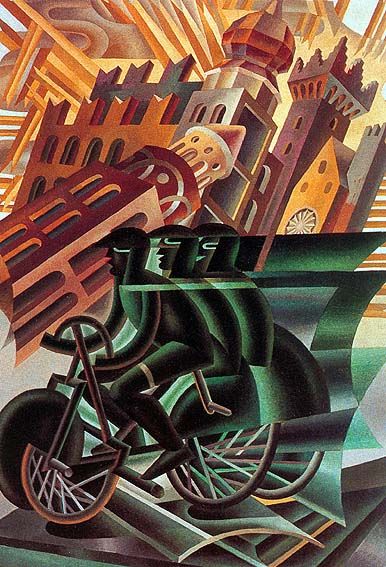
Similarly, Tadeusz Kantor incorporated a variety of awkwardly horrid mechanics of bicycles fused with broken human puppets, forming them into self-propelling death drive apparatus. “Let the Artists Die!” (‘Niech Szczezna Artysci!’). The theatre play by Kantor overwhelms with architecture of grotesque tragedy performed by doomed cyclists automata.
Automated cyclists’ doom becomes the fate of fashion models this Sunday at Barbican. They wear theatrical visions of Szajna & Kantor but transplanted to the online un-life of Kenji Siratori’s ‘posthuman pornography’, where AI-generated humanoid dolls are digitally merged with what often appears to be bicycle frames in mutual erotic cannibalism or technological self-consumption. Tropes of Szajna, Kantor & Siratori’s cycling other-way-around are visible in strategies of deconstruction employed in Kraftchenko’s urban fashion for industrial people.
According to Kim Il Sung, the founder of the industrial regime in North Korea, a lonely cyclist poses a radical threat to the integrity of society. As much as the dictator’s statement can seem a ridiculous exaggeration, there is probably a plausible intuition behind this anti-individualistic justification of viscous communist repression. Since the hypermobility of cyclist’s bodies defies geopolitical constraints, they can move across territorial and mental boundaries without relying on state infrastructure nor ideological guidance. Moreover, they can perform rapid anonymous explorations of odd territories and potentially plot manoeuvres that can look like terrorist activity to paranoid authorities.
Enclosed by the sublime soft-totalitarian architecture of the Barbican, Kraftchenko flirts with escapist fantasies of eluding political control. As she sends her models on a journey across uneven levels and scattered semi-enclosed areas, they have to struggle with moving their bicycles through urban planes, at times forced to carry the vehicles awkwardly, only every now and then to erupt and charge into obscure psycho-cycle assault.
The show is on Sunday 17 September 2023 at the Barbican, London.

